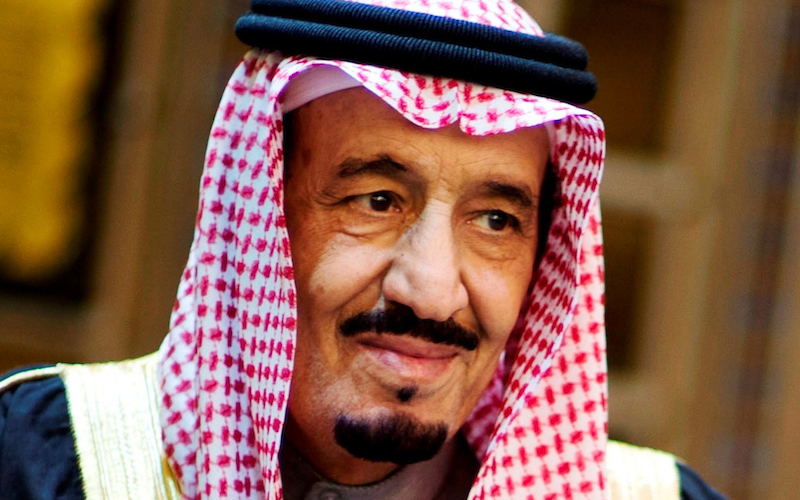
Saudi Arabia’s Regional Dual-Strategy
Last week, the Senate Committee on Foreign Relations hosted an event titled “Iraq at a Crossroads: Options for U.S. Policy,” where it heard varying perspectives on how to deal with the situation in Iraq in the light of the recent advancement of the violent militant group, ISIS, in its territory. In one striking moment, the Deputy Assistant Secretary of State for Iraq and Iran, Brett McGurk, said Saudi Arabia “very generously” gave a $500 million donation towards UN relief agencies responding to the worsening humanitarian situation in Iraq. This would appear like a very ordinary statement, as Iraq is in dire need of such assistance and it dwarfs the United States’ relatively meager $18 million donation. However, what makes such a statement striking is that it perfectly exemplifies Saudi Arabia ‘s dual strategy of maintaining good relations with a multitude of contrasting actors –whether it be Sunni extremists in Syria or the United States.
Since the post-World War II era, the U.S. and Saudi Arabia have held a relationship based on qui pro quo. Saudi Arabia would provide the U.S., and the world for that matter, a secure and consistent flow of oil while the U.S. would assist on the security front. Internal stability was critical for the royal family’s ability to hold power and their lavish lifestyle. Any group that threatened their rule would have to be dealt with. The first were the Arab nationalists led by Egypt’s Gamel Abdel Nasser, who promoted a united Arab front under the banner of socialism. Any such union, like the one Syria and Egypt held for a short period, and socialism are not quite conducive with an authoritarian monarchy.
This led Saudi Arabia to embrace the idea that “the enemy of my enemy is my friend” when it harbored Egypt’s Muslim Brotherhood, an internal thorn for Nasser and his secular nationalism. However, Saudi Arabia’s support for an Islamist counter to Arab nationalism took a turn post-1967 when an Egypt-led invasion of Israel failed in the Six-Day War.
In shock, much of the Arab world turned away from nationalism and embraced religion with a new vigor –perhaps God turned away from them during the invasion because they had been prioritizing nationalism over Islam (the same way the Suez crisis of 1956 boosted Arab nationalism, the Six Day War killed it). This played into the hands of religious groups, like the Muslim Brotherhood, who had been largely in the political shadows.
This became a problem for Saudi Arabia, as the failed invasion empowered Islamic fundamentalists, namely the Wahhabists, at home. As a domestic group, they were arguably a stronger threat to the Saudi royal family than the nationalists ever were. They had strong social ties among the Saudi population and historic influence over the Saudi royal family. There was no use in fighting them. Instead, they decided to support the movement abroad to avoid problems at home. Or as Vali Nasr, the Dean of the Johns Hopkins School of advanced International and former State Department Senior advisor, described it in his book, The Rise of Islamic Capitalism: Saudi Arabia “began lavishly bankrolling the proselytization of Wahhabism around the world…By diverting their Wahhabi subjects’ energies and attention toward the export of their piety, the kingdom’s rulers bought themselves a new lease on stability within the kingdom…In time, money would also support wars, not only in Bosnia, but in Afghanistan, the breakaway Russian republic of Chechnya, and the disputed province of Kashmir between India and Pakistan.”
Saudi Arabia’s strategy today remains largely the same, albeit with a stronger focus on countering Iran’s regional prowess as well. Riyadh has heavily supported rebels fighting Syria’s disgraced President Bashar al-Assad, in disregard of the extremist element present in most of them. By doing so, it can avoid the ire of Islamic fundamentalists at home. The result? The strengthening of groups like ISIS that are uncontrollable and create instability throughout the Middle East –to Saudi Arabia’s own detriment. If the Persian Gulf states, led by Saudi Arabia, hadn’t supported the rebels so indiscriminately it is unclear ISIS would have had the success that it has had. Yet, you only hear of Saudi Arabia acting “very generously.”
This is what makes Saudi Arabia’s dual strategy so interesting. It appears to be hypocritical at the core, but it (so far) has done well to support the royal family’s status quo. As it supports extremist groups throughout the Middle East, it can turn to the United States and say “hey, we just gave $500 million to the refugee crisis in Iraq” as it provides the world with energy stability. This allows others to turn a blind eye to the impact of the Kingdom’s problematic strategy in maintaining internal stability. As Saudi Arabia continues with its dual-strategy, it will be important for the U.S. to take note as it attempts to reassess its own strategy in the Middle East.

